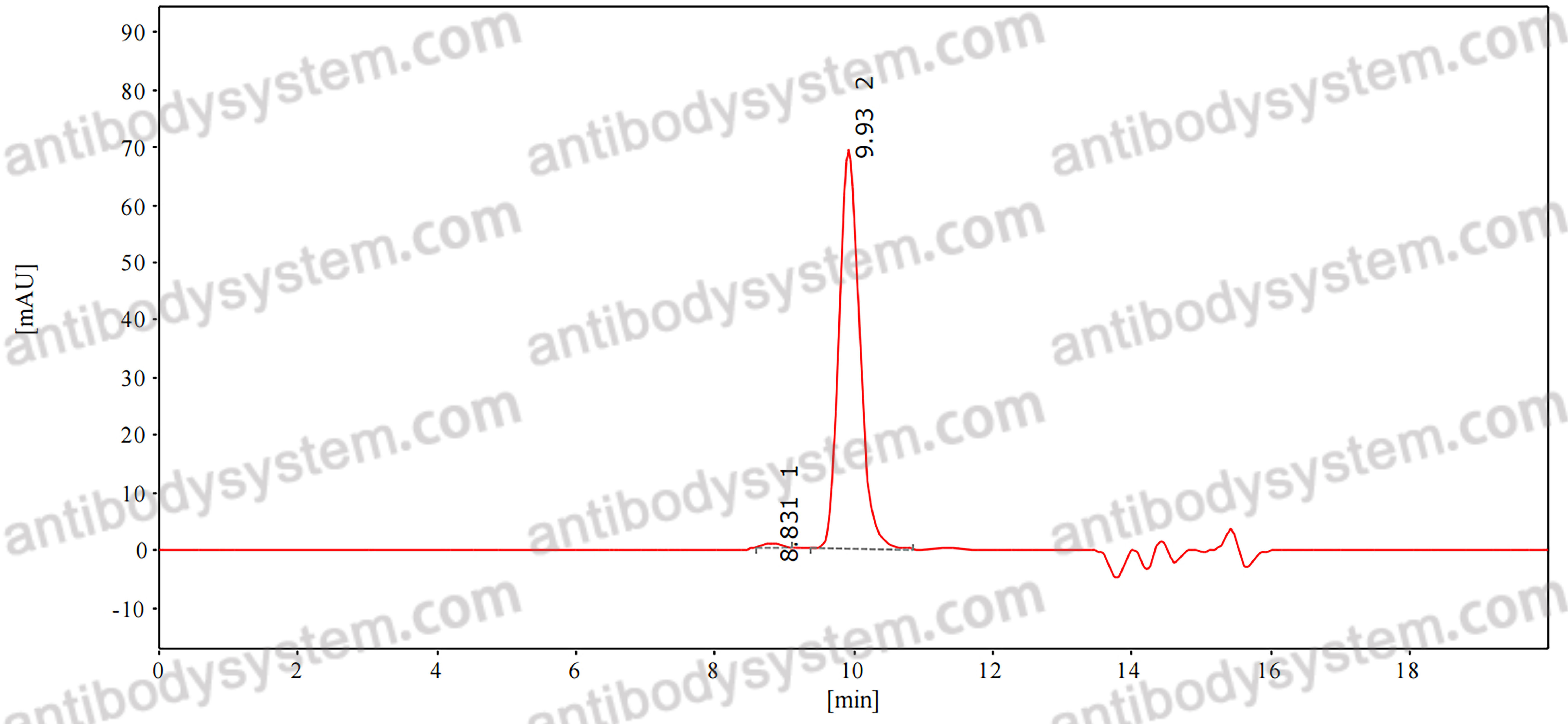Generation of a Severe Hemophilia A Humanized Mouse Model Capable of Inducing an Anti-FVIII Immune Response., PMID:40300593
A scan of pleiotropic immune mediated disease genes identifies novel determinants of baseline FVIII inhibitor status in hemophilia A., PMID:40263602
An engineered Treg selective immunocytokine induces sustained immune modulation in a preclinical model of hemophilia A., PMID:40056981
A randomized, two-armed, double-blind, single-dose, cross-over, bioequivalence clinical trial to compare pharmacokinetic parameters and safety of recombinant human factor VIII with Fc fusion produced by AryoGen Pharmed Company versus Elocta® (reference product) in previously treated patients with severe haemophilia A., PMID:39934428
Tolerance to factor VIII in the era of nonfactor therapies: immunologic perspectives and a systematic review of the literature., PMID:39800259
Accurate evaluation of factor VIII activity of efanesoctocog alfa in the presence of emicizumab., PMID:39798924
FVIII peptides presented on HLA-DP and identification of an A3 domain peptide binding with high affinity to the commonly expressed HLA-DP4., PMID:39665218
Verification and Implementation of a Bovine Chromogenic Factor VIII Assay for Hemophilia A Patients on Emicizumab Therapy., PMID:39662012
Exploring red blood cells as an antigen delivery system to modulate the immune response towards FVIII in hemophilia A., PMID:39617188
Acquired hemophilia A: a narrative review and management approach in the emicizumab era., PMID:39536818
Persistent splenic-derived IgMs preferentially recognize factor VIII A2 and C2 domain epitopes but do not alter antibody production., PMID:39476969
Comprehensive evaluation of anti-emicizumab antibodies in acquired hemophilia A: a detailed case study and methodological evaluation., PMID:39401737
CHIEF: A retrospective self-control study of children with severe hemophilia A without inhibitors comparing emicizumab to FVIII prophylaxis., PMID:39367598
Lack of factor VIII detection in humans and dogs with an intron 22 inversion challenges hypothesis regarding inhibitor risk., PMID:39233012
Large deletions and small insertions and deletions in the factor VIII gene predict unfavorable immune tolerance induction outcome in people with severe hemophilia A and high-responding inhibitors., PMID:39186847
Coagulation factor VIII: biological basis of emerging hemophilia A therapies., PMID:39088776
Recent Advances in Gene Therapy for Hemophilia: Projecting the Perspectives., PMID:39062568
Acid Treatment of FVIII-Containing Plasma Samples Unmasks a Broad Spectrum of FVIII-Specific Antibodies in ELISA., PMID:39009010
Development of a rapid and fully automated factor VIII inhibitor assay, insensitive to emicizumab, and a lowest level of quantification of 0.2 BU/mL., PMID:38992344
Emicizumab versus immunosuppressive therapy for the management of acquired hemophilia A., PMID:38936699
Structural basis for inhibition of coagulation factor VIII reveals a shared antigenic hotspot on the C1 domain., PMID:38849084
Simoctocog alfa (Nuwiq®) in children: early steps in life's journey for people with severe hemophilia A., PMID:38737006
Application of machine learning approaches for predicting hemophilia A severity., PMID:38718927
Ultra-Long factor VIII: a major step forward toward a hemophilia-free mind., PMID:38679336
Comprehensive domain-specific analysis and immunoglobulin G profiling of anti-factor VIII antibodies using a bead-based multiplex immunoassay., PMID:38453023
Comparison of thrombotic adverse events in patients treated with factor VIII products and emicizumab using the 2018-2022 US Food and Drug Administration Adverse Event Reporting System data., PMID:38395359
A Scan of Pleiotropic Immune Mediated Disease Genes Identifies Novel Determinants of Baseline FVIII Inhibitor Status in Hemophilia-A., PMID:37886476
A machine learning approach for identifying variables associated with risk of developing neutralizing antidrug antibodies to factor VIII., PMID:37251488
Bacterial Production of Recombinant Coagulation Factor VIII Domains., PMID:37109652
Race, ethnicity, F8 variants, and inhibitor risk: analysis of the "My Life Our Future" hemophilia A database., PMID:36696179
Anti-FVIII antibodies in Black and White hemophilia A subjects: do F8 haplotypes play a role?, PMID:36459498
Preimplantation genetic testing (PGT) for hemophilia A: Experience from one center., PMID:36427965
Translational readthrough at F8 nonsense variants in the factor VIII B domain contributes to residual expression and lowers inhibitor association., PMID:35924581
Genome-Wide Association Study and Gene-Based Analysis of Participants With Hemophilia A and Inhibitors in the My Life, Our Future Research Repository., PMID:35814780
Clinical conditions and risk factors for inhibitor-development in patients with haemophilia: A decade-long prospective cohort study in Japan, J-HIS2 (Japan Hemophilia Inhibitor Study 2)., PMID:35689832
Neutralizing Antibodies Against Factor VIII Can Occur Through a Non-Germinal Center Pathway., PMID:35634288
Revealing and IgG4 analysis to factor VIII in haemophilia-A patients with and without inhibitors., PMID:34949528
Serum TNF-α Level as a Possible Predictor of Inhibitor Levels in Severe Hemophilia A., PMID:34778454
Real-world experience on the tolerability and safety of emicizumab prophylaxis in paediatric patients with severe haemophilia A with and without FVIII inhibitors., PMID:34628693
An epileptic seizure and haemorrhage into the ventricular system of the brain as the first manifestations of acquired haemophilia A - Case report., PMID:34558281
Antigen-specific immunotherapy with apitopes suppresses generation of FVIII inhibitor antibodies in HLA-transgenic mice., PMID:34529764
Haemophilia: factoring in new therapies., PMID:34322873
Structure of Blood Coagulation Factor VIII in Complex With an Anti-C2 Domain Non-Classical, Pathogenic Antibody Inhibitor., PMID:34177966
Haemophilia., PMID:34168126
Protein residue network analysis reveals fundamental properties of the human coagulation factor VIII., PMID:34135429
Prediction of hemophilia A severity using a small-input machine-learning framework., PMID:34035274
Nonhuman glycans can regulate anti-factor VIII antibody formation in mice., PMID:34019619
Performance of a clinical risk prediction model for inhibitor formation in severe haemophilia A., PMID:33988289
Characterisation and application of recombinant FVIII-neutralising antibodies from haemophilia A inhibitor patients., PMID:33973229
The effectiveness and value of emicizumab and valoctocogene roxaparvovec for the management of hemophilia A without inhibitors., PMID:33908280

